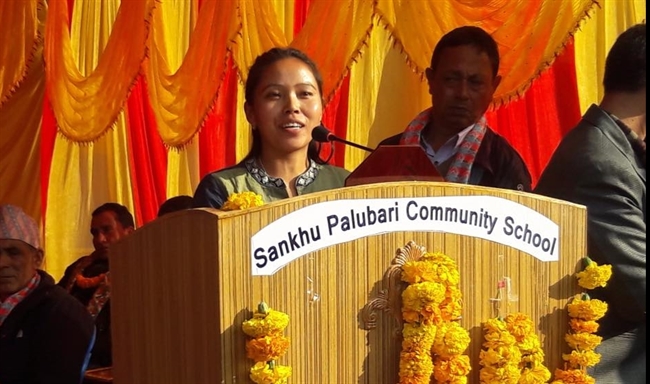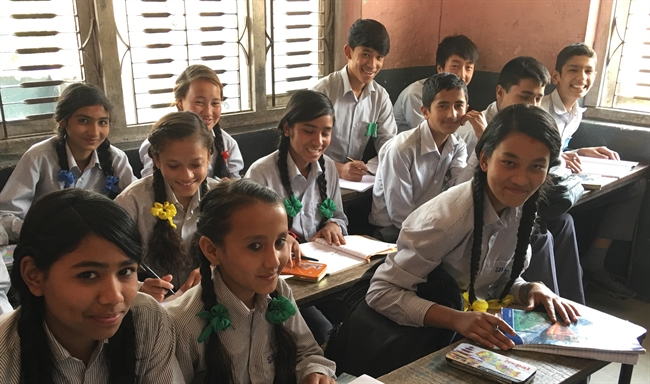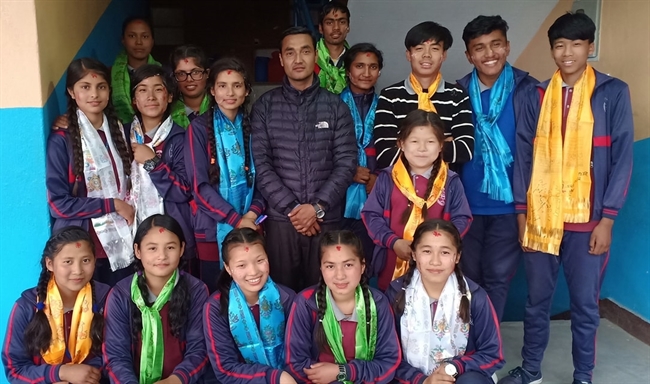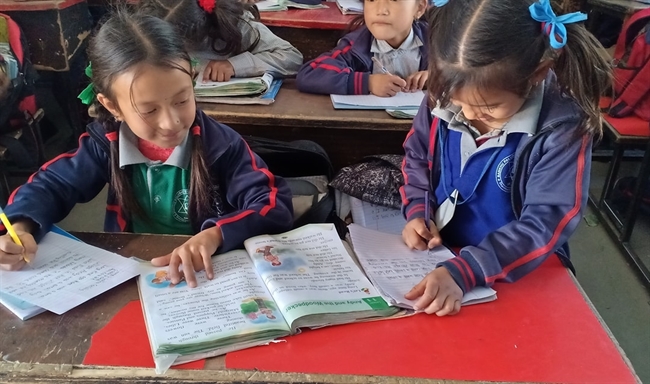Kanchi, the first female graduate, speaks at the dedication


Kanchi, the first female graduate, speaks at the dedication
SPCS students celebrate
SPCS students celebrate
SPCS ninth graders engage in learning


SPCS ninth graders engage in learning
2019 graduating class


2019 graduating class
Two girls working together


Two girls working together
Kanchi and The Advocates' Deputy Director Jennifer Prestholdt
Kanchi and The Advocates' Deputy Director Jennifer Prestholdt
Child labor remains a widespread problem in Nepal, with an estimated 1.6 million children between the ages of 5 and 17 in child labor. Child labor in brick kilns is one of the most common and exploitative forms of child labor in Nepal, exposing children to injury. Child labor is also common in agriculture, domestic servitude, service industry, jewelry and rug making. Nepali children, especially girls, are also at risk for trafficking.
The Sankhu Palubari Community School (SPCS) is a pre-K through 10th grade school located in the rural Kathmandu Valley in Nepal. Founded by The Advocates for Human Rights in 1999 and operated in partnership with Educate the Children-Nepal and the local community, the school provides a genuine alternative to child labor to 375 of the most vulnerable students in the area. By providing a completely free, high-quality education, as well as a daily meal, the school makes the right to education a reality for hundreds of Nepali children.
Public education at government schools in Nepal is technically free, but school fees and costs of supplies are a barrier that keeps children from the poorest families out of school. SPCS provides access to free education instead of child labor for children in the community. The school also welcomes all children regardless of caste or ethnicity; currently, 7% of students are Dalit and 55% are Indigenous, from families who do not speak Nepali at home. Girls make up 53% of the SPCS student body, even in grades 8-10. This is a significant accomplishment in Nepal, where more than 80 percent of girls are out of school by grade 11.
The Advocates for Human Rights funds SPCS through private donations. It costs approximately $300 to educate a child for one year. Please donate and help a child receive an education, avoid child labor, and end the cycle of poverty.





